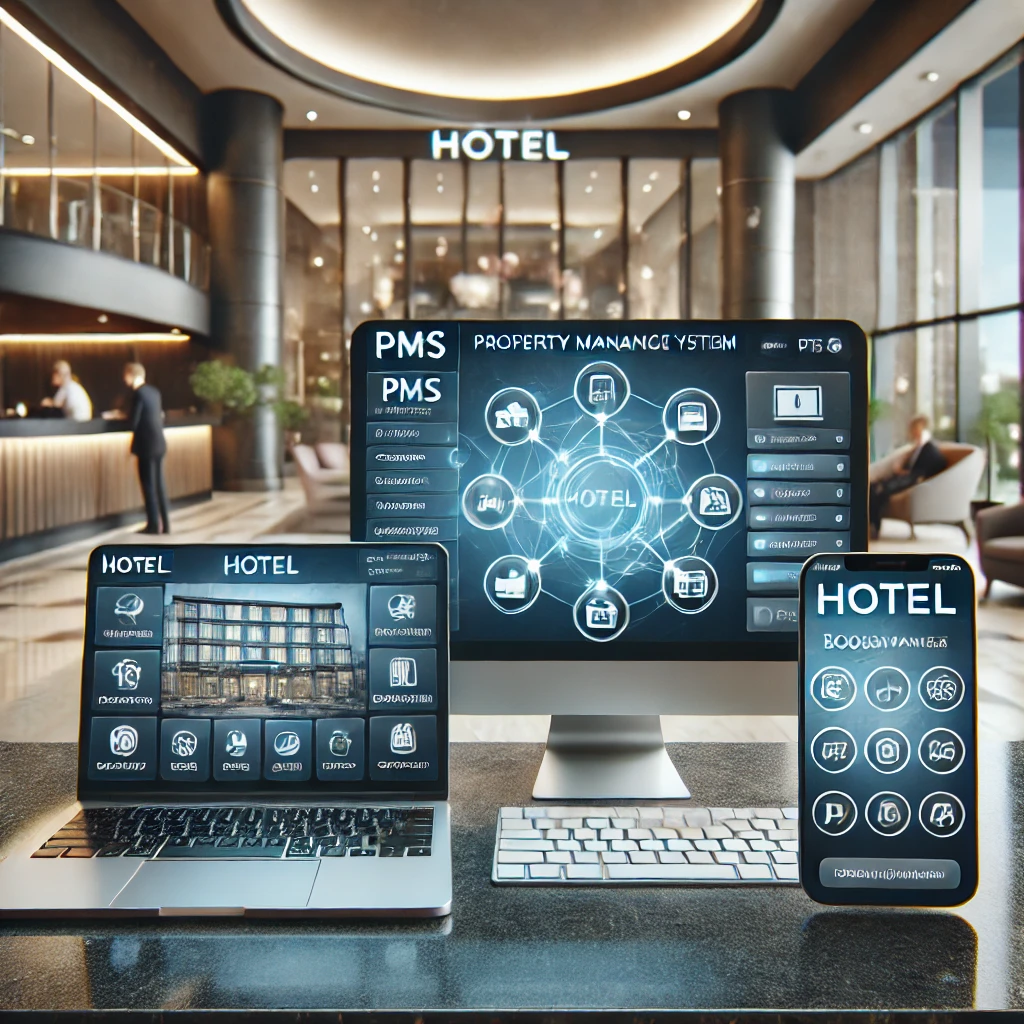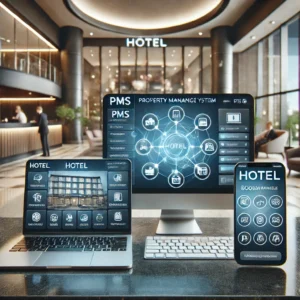The Role of a Property Management System (PMS)
A PMS serves as the operational core, handling everything from front desk tasks and housekeeping to invoicing and reporting. This is where major industry players like Mews, Cloudbeds, and MiniHotel excel, offering cloud-based systems that allow hoteliers to manage their properties remotely and in real time. These platforms eliminate the need for manual record-keeping, offering automation that streamlines day-to-day hotel operations. Many PMS solutions now incorporate guest communication tools, analytics, and mobile capabilities, further enhancing the efficiency of hotel management.
However, a PMS alone doesn’t cover all the bases—it needs to work in sync with tools that optimize room distribution and direct bookings. For example, if a hotel uses a standalone PMS, they will likely need to integrate it with a Channel Manager and a Booking Engine to maximize efficiency. This can lead to compatibility issues, which is why many hoteliers are moving towards all-in-one solutions that provide seamless connectivity.
How a Channel Manager Optimizes Distribution
Managing multiple booking platforms manually is a nightmare, and this is where a Channel Manager steps in and ensures real-time synchronization of room availability and pricing across multiple online travel agencies (OTAs) like Booking.com, Expedia, and Airbnb. Without a Channel Manager, overbookings and rate discrepancies become a serious risk.
Channel Managers automate the process of updating rates and availability, reducing the time spent manually adjusting listings. Advanced solutions like RoomCloud and Cloudbeds offer robust channel management features, but standalone software requires integrations with a PMS for maximum efficiency. All-in-one solutions like MiniHotel eliminate the need for additional third-party tools, making the process smoother and more efficient by automatically syncing reservations and availability across all platforms in real-time.
A key benefit of a Channel Manager is its ability to implement dynamic pricing strategies. With revenue management tools, hoteliers can adjust rates based on demand, occupancy, and competitor pricing, maximizing revenue potential. Without this automation, hotel staff would have to manually adjust prices across every platform, a time-consuming and error-prone process.
Boosting Direct Bookings with a Booking Engine
A Booking Engine focuses on maximizing direct reservations by providing a seamless experience for guests booking through a hotel’s website. Instead of relying solely on OTAs—who take commission cuts—hoteliers using platforms like SimpleBooking and BookOnlineNow can drive more revenue through direct channels. These tools allow hotels to offer promotions, integrate with payment gateways, and provide a frictionless booking experience to guests.
Direct bookings give hotels greater control over guest relationships, allowing them to personalize offers, gather valuable customer data, and encourage repeat business. Hotels that rely heavily on OTAs often struggle with high commission fees, making direct bookings an essential revenue strategy.
However, for direct bookings to be effective, the Booking Engine must integrate seamlessly with the PMS and Channel Manager. Those using MiniHotel gain a more seamless solution, where the Booking Engine is natively integrated, ensuring consistency and ease of management. A well-integrated Booking Engine also enables upselling opportunities, allowing hotels to offer additional services like breakfast, airport transfers, or room upgrades during the booking process.
The Case for All-in-One Solutions
Ultimately, whether a hotel chooses separate systems or an all-in-one solution depends on its specific operational needs. While some properties prefer modular software to tailor their approach, others gravitate toward comprehensive solutions like Cloudbeds and MiniHotel for their simplicity and efficiency. The fewer moving parts, the easier it is to manage operations and focus on providing a great guest experience.
One of the biggest advantages of all-in-one solutions is their ability to reduce integration issues. When using multiple standalone systems, hoteliers often face compatibility challenges, data discrepancies, and additional subscription costs. All-in-one platforms provide a single dashboard where reservations, pricing, availability, and guest interactions can be managed effortlessly.
Additionally, these systems are constantly evolving with updates that align with industry trends. With automation and AI-driven insights becoming more prominent, modern PMS, Channel Managers, and Booking Engines are incorporating machine learning to predict demand, adjust pricing dynamically, and optimize operational efficiency. This allows hotels to stay ahead in a competitive market while reducing manual workloads.
Making the Right Choice
For hoteliers looking to scale their business while maintaining control over reservations and revenue, understanding these differences is the first step in making an informed, strategic decision. A PMS streamlines internal operations, a Channel Manager ensures distribution efficiency, and a Booking Engine drives direct sales. Choosing the right combination depends on the size, budget, and strategy of the hotel.
For small to mid-sized hotels, all-in-one solutions like MiniHotel offer a cost-effective and integrated approach, removing the complexity of managing multiple software vendors. Larger hotels and chains, on the other hand, may prefer a modular setup, allowing them to customize their technology stack based on specific needs.
The hospitality industry is constantly evolving, and technology continues to play a crucial role in shaping its future. Hoteliers who embrace these digital tools will find themselves better equipped to maximize revenue, enhance guest satisfaction, and stay competitive in an ever-changing landscape.



